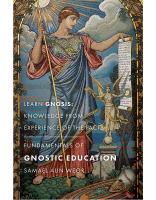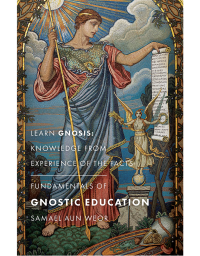In the ancient Greek city Delphi, a sacred inscription was found carved upon the living stone of the solemn threshold of a temple; such a superscription said the following:
“γνῶθι σεαυτόν.” (Nosce te ipsum; know thyself).
“Human, know thyself, and thou wilt know the universe and its gods.”
This sacred motto of ancient Greek hierophants is the fundamental, chief cornerstone, the head of the corner of the transcendental science of meditation.
Indeed, if we honestly want to establish the basis for correct meditation, then it is necessary to comprehend ourselves in all the levels of our mind. Yes, to establish the correct basis for meditation implies, in fact, to be free of ambition, egotism, fear, hate, the craving for psychic powers, eagerness for results, etc. Thus, undoubtedly, it is clear that after this basic chief cornerstone of meditation is established in the mind, it remains in quietude and within a profound and imposing silence.
So, from a rigorously logical point of view, it is an absurdity to crave the experience of reality while lacking knowledge of ourselves.
It is essential to integrally comprehend every problem in all the levels of the mind, as each desire, each memory, each psychological defect, etc., sequentially emerges from within the mind.
By all means, it is clear that during the practice of meditation, the sinister procession of all types of desires, all kinds of passions, old resentments, hatred, all the psychological defects which characterize us, etc., as well as all of our happy and sad moments, countless memories, and multiple impulses that come both from the outside world and the interior world, passes on the screen of our mind.
Indeed, those who want to establish the fundamental chief corner stone of meditation within their mind must focus their entire attention on the positive and negative values of their understanding and to comprehend them in an integral manner: not merely in the intellectual level, but also in all the subconscious, infraconscious, and unconscious levels of their mind. We must never forget that the mind has many levels. Thus, the in-depth study of all of our psychological values signifies, in fact, the knowledge of ourselves.
On the screen of the mind, any motion picture has a beginning and an end. Thus, when the parade of forms, desires, passions, ambitions, memories, etc., ends, then the mind becomes quiet and in a profound silence; it remains empty of all kinds of thoughts.
Contemporary students of psychology need to experience the illuminating Void.1 The eruption of the void within our own mind allows us to experience, feel, and undergo an element that transforms: such an element is reality.
Let us distinguish between a mind that is quiet and a mind that has been violently quieted.
Let us distinguish between a mind that is silent and a mind that has been forcibly silenced.
We must comprehend under the light of logical deduction that when the mind is violently quieted, deep down and in other levels it is not quiet; there, the mind struggles to become free from those shackles. Yes, from the analytical point of view, we have to comprehend that when the mind is forcibly silenced, deep down it is not silent; instead, it is screaming with terrible desperation.
The true quietude and natural and spontaneous silence of the mind arrive to us as a grace, as a bliss, when the process of the intimate, filmed image of our own existence ceases its projection on the marvelous screen of the intellect. Thus, only when the mind is naturally and spontaneously quiet, only when the mind is in a delectable silence, does the eruption of the illuminating Void occur.
“Voidness is not easily explained. It is not definable or describable.
“As Zen Master Hui Jang has said: ‘Anything that I say will miss the point.’ Voidness cannot be described or expressed in words. This is because human language is created primarily to designate existent things, [thoughts] and feelings; it is not adequate to express non-existent things, [phenomena] and feelings. To attempt to discuss Voidness within the limitations of a language confined by the pattern of existence is both futile and misleading...”
—Garma C. C. Chang, Practice of Zen
“Form does not differ from Voidness, and Voidness does not differ from Form; Form is Voidness and Voidness is Form.” —Prajnaparamita Sutra
“...it is owing to Voidness that things can exist and, because of the very fact that things do exist, they must be Void. ...Voidness and existence are complementary to each other and not in opposition to each other; they include and embrace, rather than exclude or negate each other. When ordinary sentient beings see an object, they see only its existent, not its void, aspect. But an enlightened being sees both aspects at the same time... Voidness is simply a term denoting the nonsubstantial and non-self nature of beings, and a pointer indicating the state of absolute nonattachment and freedom.”
—Garma C. C. Chang, Practice of Zen
Teachers of schools, colleges, and universities must perform an in-depth study of our revolutionary psychology and thereafter teach their students the path that leads to the experience of reality.
“To arrive at the experience of reality is only possible when all thoughts have ceased.
“The eruption of the Void allows us to experience the bright light of pure reality.
“That ever-present knowledge, which in the reality is empty, without characteristics or color, devoid of condition, is the true reality, the universal compassion.
“Your intelligence, whose true nature is the Void—which must not be seen as a void of nothingness, but as that very intelligence without shackles: brilliant, universal, and happy—is cognizance, the Buddha, universally wise.
“Your own empty cognizance and that brilliant and joyful intelligence are inseparable; their union forms the Dharmakaya, the state of perfect illumination.
“Your own brilliant cognizance, empty and inseparable from the great body of splendor, has neither birth nor death: it is the immutable light, the Amitaba Buddha.
“This knowledge is enough. To recognize the emptiness of your own intelligence as the Buddhic state and to consider it as your own cognizance is to continue within the divine spirit of Buddha.”
Consequently, keep your intellect from becoming distracted during meditation, and even forget that you are in meditation: yes, do not think that you are meditating, because when you think you are meditating, this thought is enough to disturb the meditation. Thus, this is how your mind must become empty in order to experience reality.







